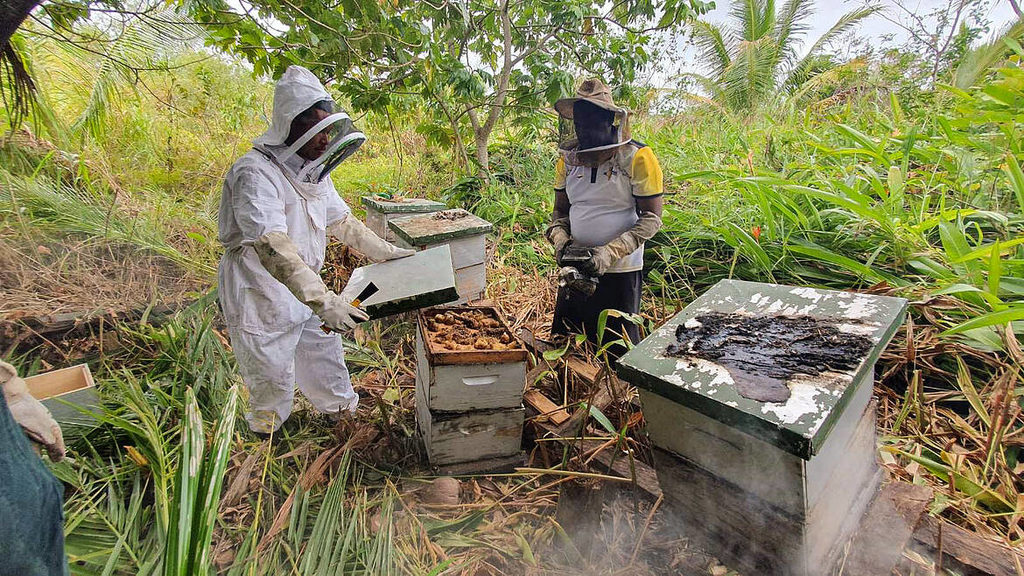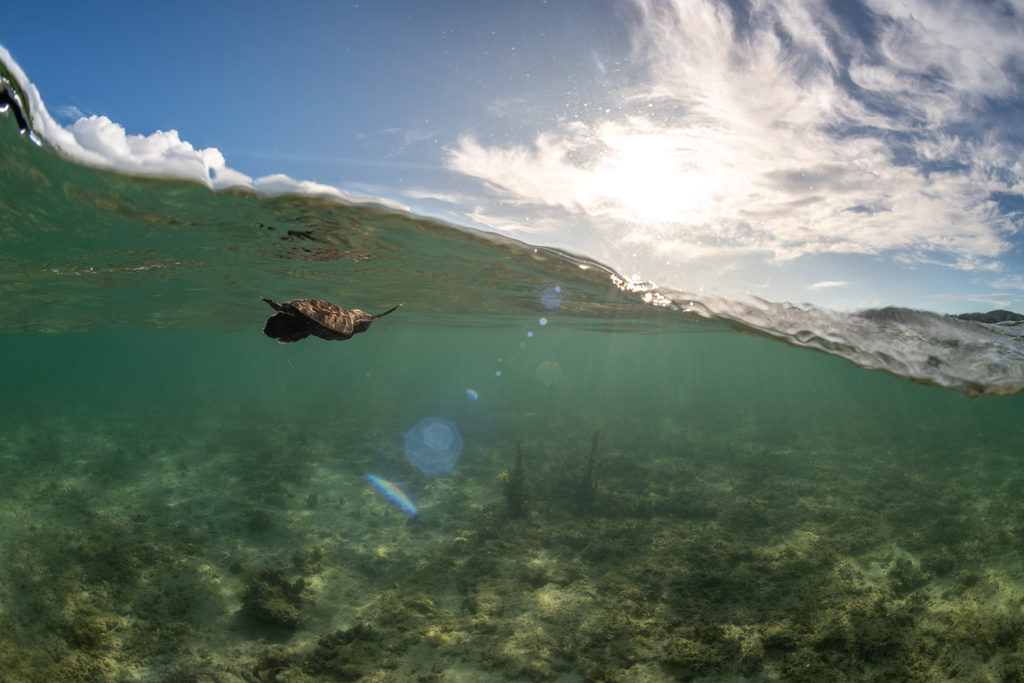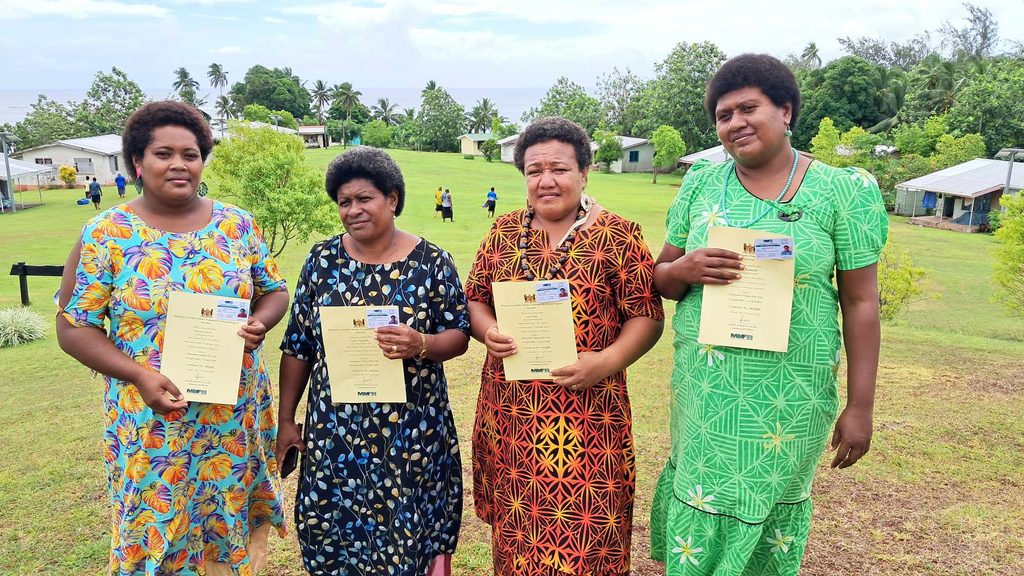LIKE many coastal communities in Fiji, the villagers of Nabouono in the remote district of Udu, Macuata have long relied on the sea to sustain their livelihoods.
Among the marine life that have been central to their diet and customs, sea turtles hold a special place; not just as a source of food but as a symbol of tradition and identity.
In the past, Nabouono villagers would harvest five to seven turtles per communal event or special gatherings like weddings, funerals, and chiefly ceremonies.
These traditional gatherings were incomplete without turtle meat, a culturally-significant delicacy.
But over time, that tradition, once sacred, became a growing concern. The unsustainable harvesting of turtles posed a direct threat to their population in the region.
Udu is one of fourteen districts that are traditional custodians of the Great Sea Reef.
Stretching over 200 kilometres, the barrier reef, known among locals as Cakaulevu, is the third-longest continuous barrier reef system in the Southern Hemisphere.
It is critical not only for biodiversity but also for food security. Close to 80 percent of the fish that feeds the urban population in Suva are sourced from the reef.
However, increasing pressures from overfishing, climate change, and habitat destruction have put this ecosystem at risk.
In 2017, the Government, as part of its commitment at the United Nations Oceans Conference, identified the Great Sea Reef as one of four priority seascapes to be protected and sustainably managed.
This national commitment was later supported by a 2022 report titled Status and Trends of Coral Reefs and Associated Coastal Habitats in Fiji’s Great Sea Reef.
The report revealed a decline in reef health and highlighted the urgent need to increase fisheries management and replicate marine area networks in each traditional fishing ground.
Recognising the role of communities in protecting their resources, the Worldwide Fund for Nature (WWF) began working with five villages in Udu, including Nabouono, to identify alternative livelihood options that could reduce reliance on turtle harvesting and other unsustainable practices.
A key feature of the organisation’s approach was integrating the voices of women and youth in decision-making, ensuring that all members of the community were represented in the process of conservation and change.
WWF’s assistant turtle project officer, Karalaini Raravosa said Udu was identified as a critical area for intervention after a survey revealed it to be a red zone for turtle harvesting.
“A survey was conducted, and we found out Udu had the highest number of turtle harvests but then we looked deeper into the reasons,” she said.
“Most of the turtles were harvested for traditional functions, not for commercial sale.”
She said the village harvested turtle as they lacked other alternative meat sources.
“There were no cattle, no consistent vegetable farming, and a few households had freezers to store other types of meat.
“It was more about what was available, what was needed during events, and what was culturally accepted.”
The turning point came when local women, through the Veilomani Women’s Group, began exploring other ways to provide for their families and contribute to village life.
“We are assisting and facilitating the women’s group in growing the projects they already have.”
With support from WWF, the group applied for a grant and secured funding to purchase a few cattle.
“The women also initiated a beekeeping project and recently received a boat to help transport their products to markets.” Raravosa said.
“They approached us requesting boat master training, and that is how we came in to help. These efforts are not just about income — they are about giving people choices, about creating resilience.”
Nabouono villager, Talica Vugawai said as traditional custodians of the environment and surrounding marine areas, they had the responsibility to be responsible stewards of the marine environment.
The village, she said, has made a formal commitment to stop turtle harvesting.
“We held hands and pledged to no longer harvest turtles. We no longer harvest turtles during village events,” Vugawai said.
Cattles supported by WWF was an initiative taken by the village to reduce the harvest of turtles.
“We know we will benefit not only through cash from the cows, but also by protecting our turtles.”
Today, the village manages a small herd of 14 cows, recently joined by two new calves. The villagers ensure they are fed daily and have access to fresh water.
Meanwhile, their beekeeping efforts continue to provide income despite setbacks.
“We used to have 12 hives, but a recent cyclone damaged some of them. Now we have seven, and we are looking for assistance to build more homes for the bees.
“The honey we harvest is taken to the market and sold.”
Vugawai believes change is possible when communities work together and when they are supported to lead their own development.
“This is about our future. If we do not protect what we have, our children will have nothing.”
The village headman Emori Dikini said the partnership with WWF and the commitment of the villagers had made a significant impact.
“Before, we didn’t think much about how many turtles were taken,” he said.
Mr Dikini said now they understood the ‘bigger picture’.
“We are connected to the reef, and what happens here affects the whole country. It affects Suva. It affects everyone.”
He said the villagers were proud to be part of a national effort to conserve the reef.
“We feel proud knowing we are part of something important. Our actions here matter.”
Apart from Nabouono, the other four villages in the district of Udu involved in the initiative have also taken steps to reduce turtle harvesting and pursue sustainable livelihoods.
Each village has adopted its own strategies based on available resources and interests.
In some, there is a focus on farming root crops and vegetables; in others, women’s groups are producing handicrafts or dried seafood products for sale in Labasa and beyond.
While challenges remain, such as limited access to markets, climate-related disruptions, and the need for more training, the progress in Udu offers hope.
It shows that community-led conservation initiatives, when supported by thoughtful partnerships, can lead to meaningful change.
Ms Raravosa said the success of the program considered whether similar programs could be initiated in other villagers.
“We are trialling out the alternative livelihood component, WWF United Kingdom funds this.”
For the people of Udu, protecting the reef and its turtles is no longer just a conservation journey, it is a story of transformation, resilience, and the power of tradition evolving with time.
Nabouono villagers participate in a comprehensive beekeeping training program, including hands-on training in honey harvesting. Picture:WWF PACIFIC

Picture: WWW PACIFIC/Tom Veirus



